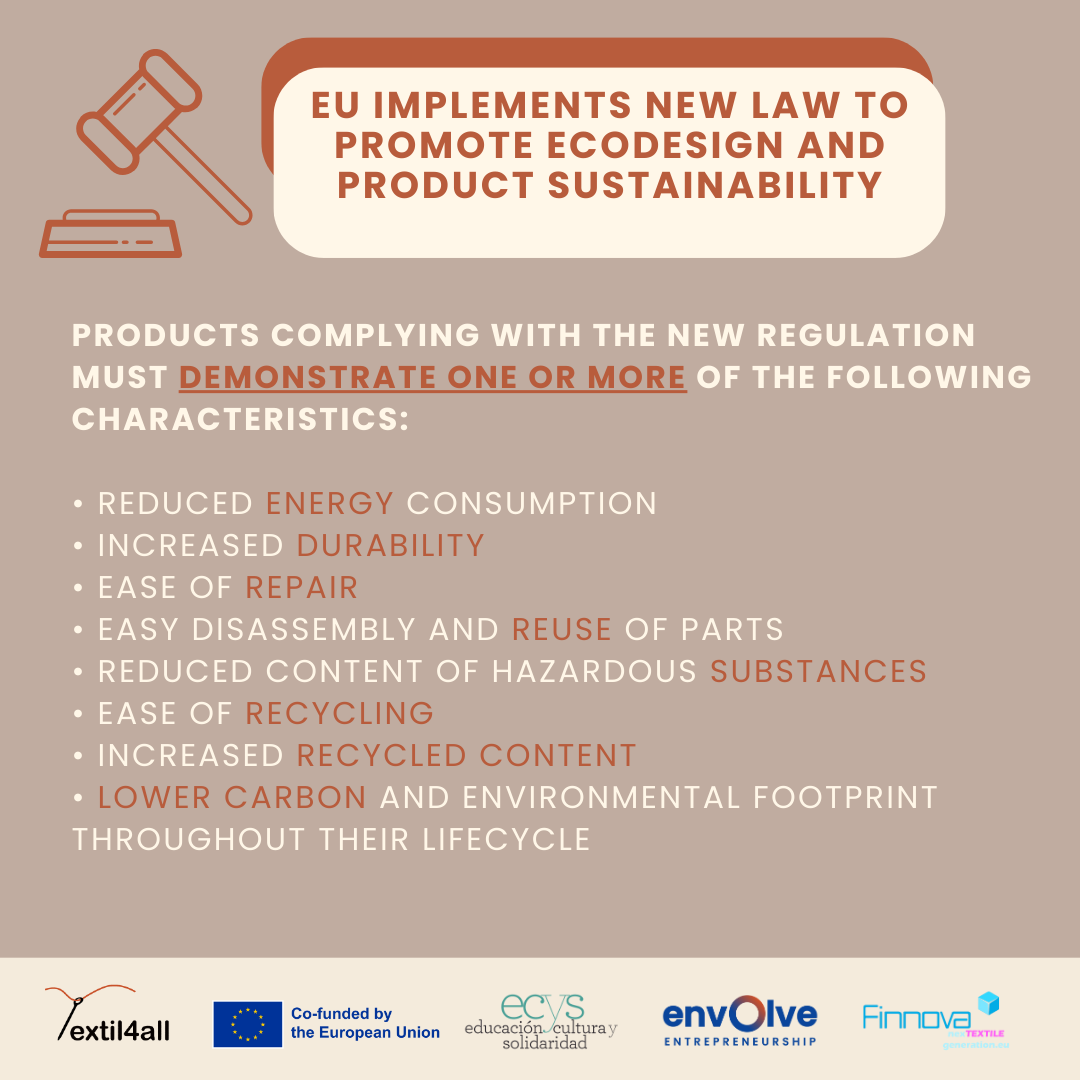A new European Union law has come into force, setting requirements and providing ecodesign information for almost all categories of physical goods entering the EU market. The Ecodesign Regulation for Sustainable Products builds on the existing Ecodesign Directive, which previously covered only energy-related products.
The primary goal of this new regulation is to significantly enhance the circularity, energy performance, and other environmental sustainability aspects of products marketed in the EU. Ecodesign refers to the integration of environmental considerations into all stages of product development, which is crucial in a world with a growing demand for efficient and sustainable products. This approach aims to reduce energy and resource consumption, promoting more responsible and sustainable practices.
Products complying with the new regulation must demonstrate one or more of the following characteristics:
- Reduced energy consumption
- Increased durability
- Ease of repair
- Easy disassembly and reuse of parts
- Reduced content of hazardous substances
- Ease of recycling
- Increased recycled content
- Lower carbon and environmental footprint throughout their lifecycle
Additionally, the regulation introduces measures to prohibit the destruction of unsold textiles and footwear and allows for the possibility of extending similar bans to other sectors if necessary. Companies will also be required to publicly disclose annual information on their websites, including the number and weight of products discarded and the reasons for disposal. This transparency will contribute to greater corporate responsibility and enable consumers to make more informed choices.
Furthermore, the regulation sets mandatory criteria for green public procurement, directing public spending towards more sustainable options. EU public authorities currently spend around €1.8 trillion on works, goods, and services, presenting a significant opportunity to promote sustainable practices.
The implementation of this law underscores the EU’s commitment to sustainability and its ongoing efforts to provide benefits to businesses, consumers, and the environment. In 2021, the existing ecodesign measures covering 31 product groups saved EU consumers €120 billion in energy costs and led to a 10% reduction in annual energy consumption.
More info:

